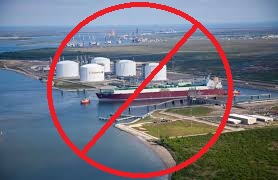Gas Drilling's Safety Exemptions and How They Got There
September 14, 2015Fracking Chemicals Detected in PA Drinking Water
October 5, 2015by Joshua B. Pribanic & Melissa Troutman, Public Herald, September 15, 2015
Read About PA DEP’s Shredding Policy for Complaints
Nearly 40 days after losing her drinking water, Christine Pepper received a certified determination letter from the Pennsylvania Department of Environmental Protection (DEP) at her home in Leroy Twp., Bradford County. The letter would tell her whether fracking was to blame.
Halfway down the first page it read “analytical results do not reveal any impacts from oil and gas activity” meaning the DEP investigation for Complaint #302587 determined the drilling and fracking next to her home did not impact her water supply. According to the state, the drinking water that nurtured her family’s farm for over 50 years was still safe.
“The Department considers this case closed and does not anticipate any further action in relation to this matter.”
As DEP and industry advocates like Energy-In-Depth and Marcellus Shale Coalition have reiterated, most water contamination complaints receive the same letter as Christine and are determined by regulators to be “non-impact” cases.
Yet, until this report, the public’s never seen complete non-impact complaint records for multiple counties – and the story they tell is alarming.
After a 30-month analysis, a Public Herald investigation has uncovered 9 ways that officials at the Department of Environmental Protection (DEP) have kept drinking water contamination across Pennsylvania “off the books” since fracking began in 2004.
That DEP has failed to make water contamination a matter of public record isn’t new, as revealed by private lawsuits where the Department admitted to walking away from documented contamination without issuing an order, notification or fine. Similar to patterns discovered by Public Herald, the Harvard Law School’s May 2014 report concluded that the most common errors in DEP’s water contamination investigations were:
- PADEP does not explain the water sample analysis;
- PADEP does not explain how it reached its conclusion;
- PADEP indicates that it does not have adequate information to make a determination;
- the letters are confusing and/or inconsistent with others in the same geographic area.
In drawing these conclusions, Harvard looked at 450 determination letter case files. Public Herald has now released 2,309 complaint records for 17 of 40 counties where shale gas operations take place, and our team has analyzed over 200 complaint cases.
Public Herald’s analysis concludes that the current 260 positive water contamination determinations listed by DEP is repetitively understated. Analyzing five key townships — Delmar, Charleston, Cogan House, Leroy and Wyalusing — Public Herald found the Department mishandled a significant percentage of its water contamination cases between 2009 and 2012. We refer to these cases as “cooked,” meaning there’s reason to believe that DEP’s determination can be challenged and possibly reversed.
The majority of the records, 1275, are complaints about drinking water, while the remaining 1034 cases are considered general complaints but can also be water related.
Washington County recorded the highest number of complaints at 667 cases, while Bradford County had the second highest of 520 on file with 398 cases being drinking water investigations.
Complaints Are The Road Map
In 2008, complaints served as the first road map to potential water contamination from fracking when residents in Pavillion Wyoming contacted EPA saying their water had been contaminated. These anecdotal phone calls and emails set the stage of doubt about the safety of ‘high-volume hydraulic fracturing of unconventional wells for shale gas’ — that came to be more simply known as ‘fracking’ in November 2010 (according to Google Trends).



